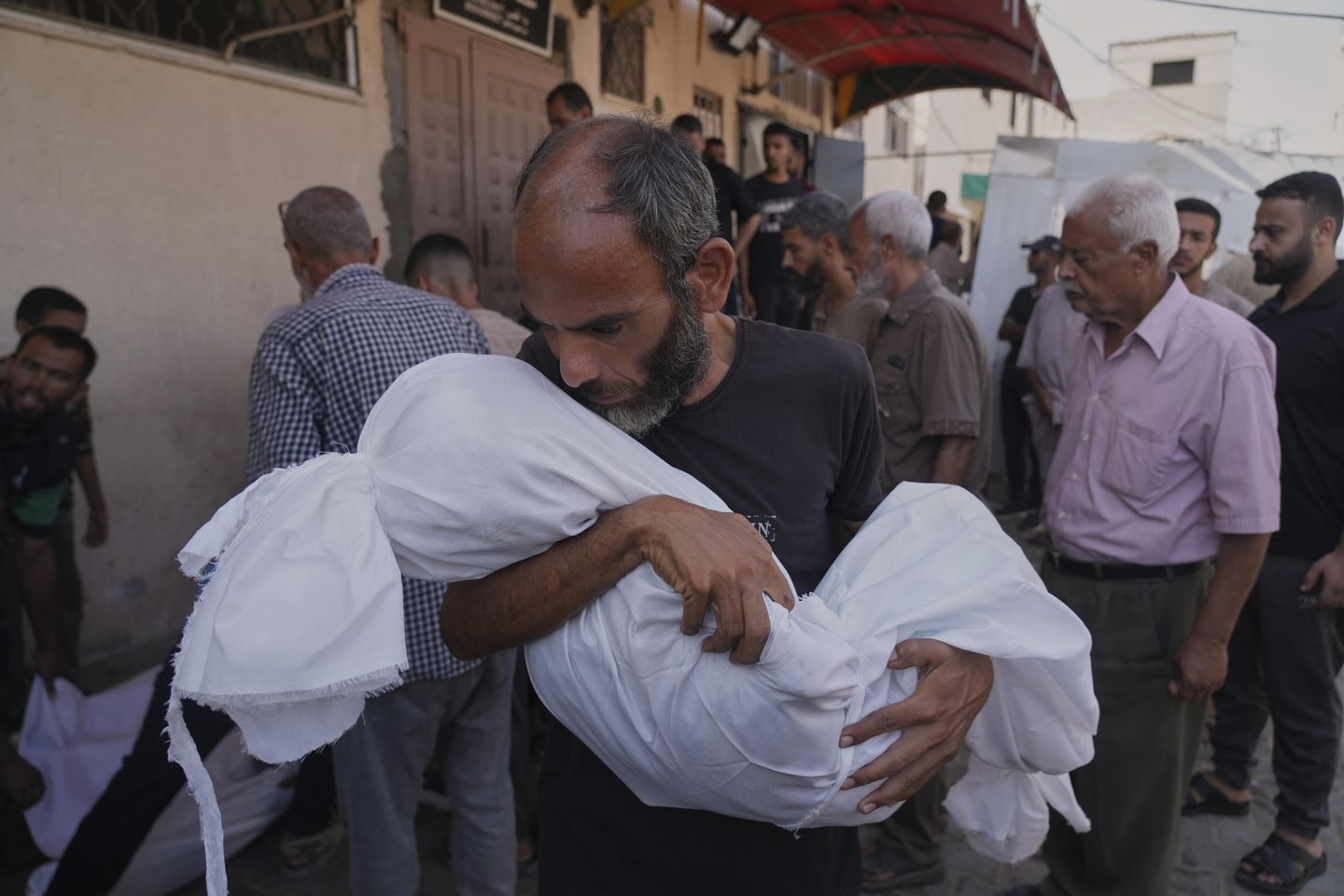
JERUSALEM — A key mediator on Tuesday stressed the urgency of brokering a ceasefire in the Gaza Strip after Hamas showed a “positive response” to a proposal from Arab countries, but Israel has yet to weigh in as its military prepares an offensive in some of the territory’s most populated areas.
The prospect of an expanded assault on Gaza City and other areas sheltering hundreds of thousands of civilians has sparked international outrage. Palestinians say there is nowhere to flee after 22 months of war that has already killed tens of thousands and destroyed much of the territory.
“They are talking about a 60-day truce, and after Israel gets its (hostages) they will strike us again,” said Huda Rishe, who has been displaced four times since the start of the war. “We will return to Gaza City and then leave again. We have lost hope.”
AP reporters saw some families arriving in central Gaza after fleeing Gaza City.
Many Israelis, who rallied in the hundreds of thousands on Sunday, fear the offensive will further endanger the remaining hostages in Gaza. Just 20 of the 50 remaining are thought to be alive.
“If this (ceasefire) proposal fails, the crisis will exacerbate,” Majed al-Ansari, a spokesperson for Qatar’s Foreign Ministry, told journalists, adding they have yet to hear from Israel on it.
Mr. Al-Ansari said Hamas had agreed to terms under discussion. He declined to provide details but said the proposal was “almost identical” to one previously advanced by U.S. envoy Steve Witkoff.
That U.S. proposal was for a 60-day ceasefire, during which some of the remaining hostages would be released and the sides would negotiate a lasting ceasefire and the return of the rest.
“If we get to a deal, it shouldn’t be expected that it would be instantaneously implemented,” Mr. al-Ansari said. “We’re not there yet.”
That cautious assessment came a day after the foreign minister of Egypt, the other Arab country mediating the talks, said they were were pushing for a phased deal and noted that Qatar’s prime minister had joined the negotiations with Hamas.
Mr. Witkoff has been invited to rejoin the talks, Egyptian Foreign Minister Badr Abdelatty told The Associated Press. Mr. Witkoff pulled out of negotiations less than a month ago, accusing Hamas of not acting in good faith. It was not clear how Mr. Witkoff has responded to the invitation.
Mr. Abdelatty held a series of phone calls Tuesday with foreign ministers from the United Kingdom, Turkey and the European Union, seeking to put pressure on Israel to accept the ceasefire proposal.
“The ball is now in Israel’s court,” Mr. Abdelattay said in a statement.
An Israeli official, speaking on condition of anonymity to discuss the sensitive talks, said the government’s position has not changed. Prime Minister Benjamin Netanyahu has said he will pause the fighting to facilitate the release of hostages, but that the war will continue until all the hostages are returned and Hamas is defeated and disarmed.
Hospitals in Gaza said they had received the bodies of 34 Palestinians killed Tuesday, including women and children, as Israeli strikes continued across the territory.
Hamas-led militants started the war when they attacked Israel on Oct. 7, 2023, killing some 1,200 people, mostly civilians, and abducting 251. Most of the hostages have been released in ceasefires or other deals. Hamas says it will only free the rest in exchange for a lasting ceasefire and an Israeli withdrawal.















